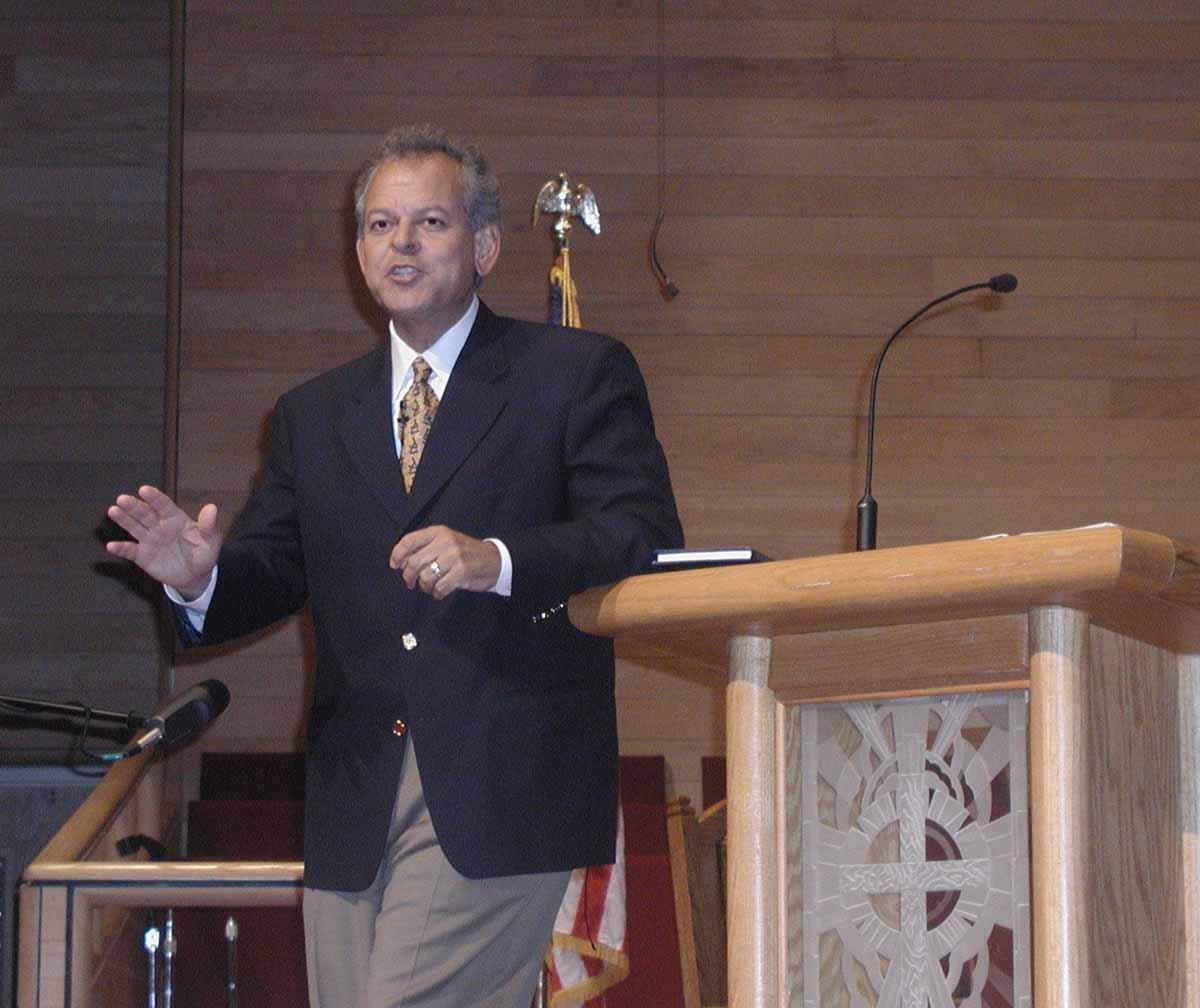
GERMANTOWN, Tenn. (BP)–The statistics are alarming. Over 100 Southern Baptist ministers are terminated each month. The numbers who leave under pressure swells that total exponentially. These facts awakened in the heart of Steve Wilkes a desire to do more than just bemoan the obvious.
Wilkes, professor of missions at Mid-America Baptist Theological Seminary, let his burden birth a desire to minister specifically and personally to pastors and others hurting from these experiences, and to help prevent the numbers from rising in the future.
More than 300 ministers, laypersons, directors of missions and seminary students gathered at Mid-America Baptist Theological Seminary of Germantown, Tenn., on April 29-30, for the area’s first Conference on Church Conflict and Forced Termination. The conference was sponsored by the seminary in cooperation with the state conventions of Arkansas, Mississippi, and Tennessee, as well as LifeWay Christian Resources of the Southern Baptist Convention.
Among those speaking at the conference were Bob Sheffield, pastoral ministry specialist, Conflict Management/Mediation Division of Life Way Church Resources; Johnny Hunt, pastor of First Baptist Church in Woodstock, Ga.; and Layton Howerton, a Christian recording artist who has also been a pastor and church planter.
Sheffield addressed issues surrounding conflict, noting that conflict is a misunderstood word. He also said conflict can be neutral, destructive and even energize churches. One thing is certain, he noted. Conflict is inevitable.
He also listed the “Top 5 Reasons for Forced Termination in SBC:”
— “Who’s going to control the church?”
— Poor people skills on the part of the pastor.
— The church is resistant to change
— Pastor’s leadership style does not match the congregation.
— Unresolved conflict before the pastor arrived.
Sheffield concluded by calling God’s people to seek God in conflict, “We need God’s revelation instead of our reasoning. God’s in the solution business.”
Speaking on “How to Get Along with Almost Anybody,” Sheffield dealt with difficult people and the responses needed to work with them.
He reminded participants that they all have difficult people in their lives, that they cannot change difficult people, and that they must learn to relate to those difficult people. Sheffield suggested three qualities required for dealing with such folks: genuineness; non-possessive love and empathy. He concluded with the challenge, “Don’t pass up a chance to forgive.”
Hunt said he has a passion for hurting pastors, staff members, and their families. His church presently ministers to 11 such families.
His first session addressed the issue, “How to Experience the Blessings of God.”
Calling for unity in churches, he remarked, “The consummate purpose of unity is not to strengthen believers, but to glorify God.” When faced with conflict, Hunt offered believers three choices to view life:
— Endure life and see life as a burden. Others control you.
— Escape life and see it as a battle. You’re in control.
— Enjoy life and it’s a blessing. God’s in control.
Hunt identified four needs pastors are lacking: the needs for contentment, gratefulness, faithfulness, and soberness. On soberness, he observed that the main reasons ministers fall morally relate to the misconception that pastors don’t have to follow the rules like everyone else. Many feel that moral failure would never happen to them.
He warned, “Your dreams may carry you places your character can’t take you; likewise, your talents may carry you to places your character cannot sustain you.”
–30–
(BP) photos posted in the BP Photo Library at http://www.bpnews.net. Photo titles: JOHNNY HUNT, STEVE WILKES and NORTHCOTT SPEAKS.
















